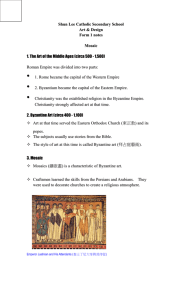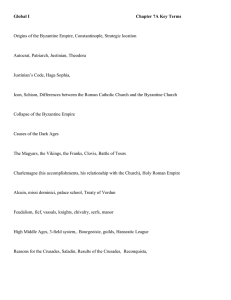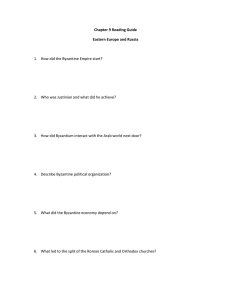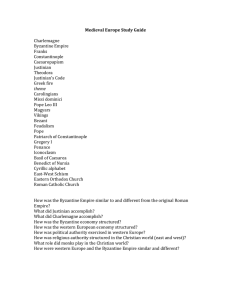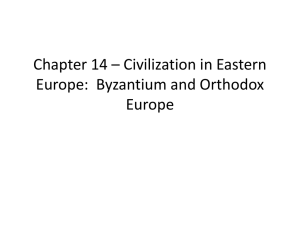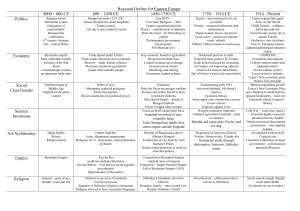AP World History Proof of Reading
advertisement
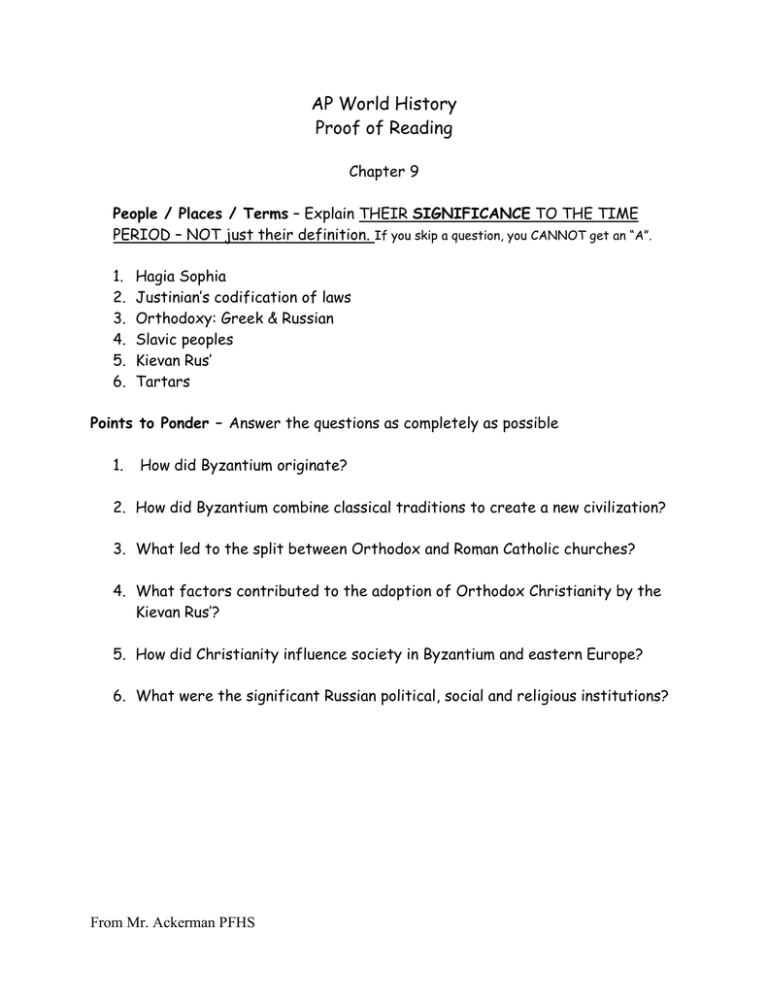
AP World History Proof of Reading Chapter 9 People / Places / Terms – Explain THEIR SIGNIFICANCE TO THE TIME PERIOD – NOT just their definition. If you skip a question, you CANNOT get an “A”. 1. 2. 3. 4. 5. 6. Hagia Sophia Justinian’s codification of laws Orthodoxy: Greek & Russian Slavic peoples Kievan Rus’ Tartars Points to Ponder – Answer the questions as completely as possible 1. How did Byzantium originate? 2. How did Byzantium combine classical traditions to create a new civilization? 3. What led to the split between Orthodox and Roman Catholic churches? 4. What factors contributed to the adoption of Orthodox Christianity by the Kievan Rus’? 5. How did Christianity influence society in Byzantium and eastern Europe? 6. What were the significant Russian political, social and religious institutions? From Mr. Ackerman PFHS Multiple Choice: Directions: Find the correct answer. Then, using text references, justify the correct answer, and provide an explanation of why the second-best answer (in your opinion) is not correct. 1. The significance of the Byzantine Empire included all of the following except a. The ability of the empire to spread its cultural and political influence to the Balkans and southern Russia b. The empire’s ability to survive for almost a thousand years c. The importance of the empire’s capital at the Constantinople as a major urban center d. The empire’s conquest of the Ottoman Empire and its inclusion of all of the Middle East e. The spread of Orthodox Christianity 2. Which of the following statements most accurately reflects the cultural influence of the Byzantine Empire? a. the Byzantine Empire was little more than an extension of the Islamic civilization b. The Byzantine Empire alone had a cultural impact on the continent of Africa c. The Byzantine Empire kept the memory of Rome alive d. The Byzantine Empire survived beyond the existence of its successor states e. Ultimately, the empire's most important stepchild was Russia 3. Which of the following was a result of the conflict between the Byzantine Empire and the Arab Muslims? a. The commercial significance of Constantinople was destroyed by the eighth century, forcing the Byzantine Empire to depend increasingly on trade with the West. b. The position of the small farmers in the empire was weakened as a result of heavy taxation, resulting in greater aristocratic estates. c. The Arab threat to the Byzantine Empire was permanently removed d. The Byzantine Empire was able to recover the provinces of Syria and Egypt, thus regaining valuable agricultural land and increased wealth. e. The army and navy were no longer top priorities in the Byzantine Empire From Mr. Ackerman PFHS
